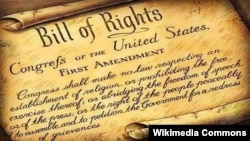Religious freedom is a fundamental right enshrined in the First Amendment of the U.S. Constitution: “Congress shall make no law respecting an establishment of religion, or prohibiting the free exercise thereof.”
Peter Berkowitz, the Director of Policy Planning at the State Department, said there is a correlation between countries that protect religious freedom and those that respect other basic rights:
“We know as an empirical matter the high correlation between countries that protect religious liberty and countries that protect all the other freedoms that the United States has traditionally cared about. And this of course makes sense if you’re protecting the liberty to have a difference of opinion about one of the matters that human beings have fought over most. Differences of opinion about God.”
There are authoritarian countries, including China, Iran, and Russia that claim because the United States does not perfectly uphold human rights at home, it has no standing to promote such rights abroad.
But Director Berkowitz calls this suggestion “outrageous”:
“There is a fundamental difference between liberal democracies such as the United States, which are grounded in an affirmation of human rights and countries like China, Iran, Russia, which repudiate the very idea of human rights. . . .Of course, I don‘t mean to deny that there aren courageous dissenters in Russia, China, and Iran. We know that there are. But the political society as a whole is not permitted to have such conversations.”
The United States Declaration of Independence and the U.N Declaration of Human Rights, said Director Berkowitz, set forth a universal standard for judging all forms of government and is what all governments should aspire to. He also expressed his hope that “people come to an appreciation that . . .liberal democracy, is the form of government best suited to vindicating human rights.”






